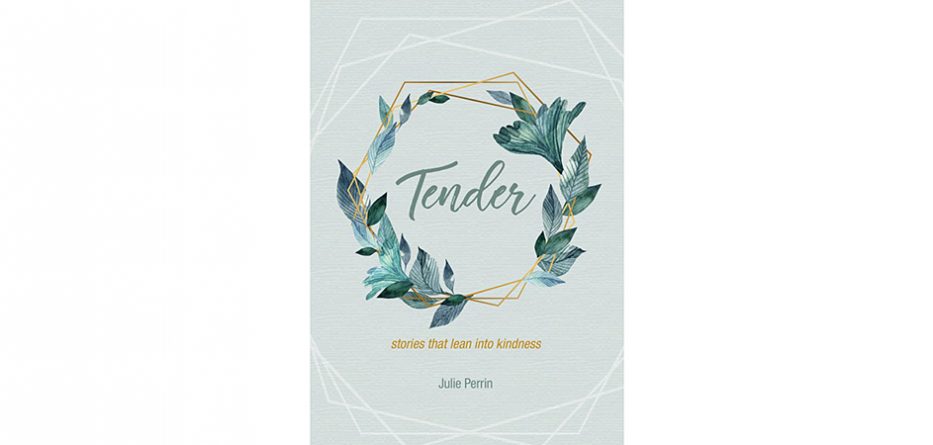Book Review: Julie Perrin, Tender: stories that lean into kindness, MediaCom Education Inc, ISBN 781925722192,
Every generation throws up popular reflection on how best to live. Much of it comes from within religious traditions. It is designed to help people reflect on their lives by bridging religious traditions and the world in which they live. It is instructive to note how its style and emphases vary with changes in the religious and broader culture.
Julie Perrin’s recent book, Tender: stories that lean into kindness, a collection of very short reflections, grouped thematically, is splendid in its own right. It is spare and elegant in its writing, inclusive in its address and open-ended in its invitation to reflection. It also offers an occasion to reflect on the ways in which spiritual writing has developed. This book is an excellent representative of a style that has become common in recent years.
In this style, writers with a strong and questioning faith address a general and not necessarily Christian audience, using anecdotes, inherited wisdom, contemporary social debates and a broad cultural reference to encourage their readers to move beyond inherited prejudice and ask themselves what really matters. The heart of the exercise is to find the right words that will disclose the depth in ordinary experience. The writing encourages readers to pay attention to the world around them, to wonder, and to celebrate God’s presence there. Readers evaluate it by the quality of the writing and its attentiveness to the depth of ordinary human experience.
Among writers familiar in Australia who write in this vein are Michael McGirr, Terry Monagle, Pádraig Ó Tuama and the late Brian Doyle. Their writing does not merely describe but evokes and creates a world, and shapes a human response that respects its variety and mystery. Significantly, too, these writers are masters of short anecdotal pieces which invite us to see the great in the small. They also write fastidiously, choosing words that disclose freshly aspects of reality which the language of traditions conceals at first reading. Following the age-old advice to writers their words don’t merely tell but show.
These qualities are evident in Tender. Even the title is evocative. Instead of Tenderness, a lovely word, but one sometimes tainted with sentimentality, the adjective Tender suggests at once rawness, vulnerability, affection and offering. In the subtitle – stories that lean into kindness – lean intimates the delicacy of an invitation to follow a direction without compulsion. It also suggests the intimacy shown when we lean on another’s shoulder, and perhaps trust that the reader will respond to the gentle invitation. Kindness evokes both generosity and our shared humanity.
The encounters and reflections that compose the book display the same sharp attention to the rawness and pathos of reality and the possibilities of words. Behind the initial detailed of description of place, time and ordinary actions, a deeper reality is disclosed that leads to reflection inviting readers to ask themselves what matters.
One of the finest pieces, ‘Bank Teller’, illustrates the style and quality of the writing. It begins with a simple, carefully observed description of a bank in a busy street. A young man is walking to the doors escorting a woman in long robes and a hijab.
The succeeding paragraphs fill out the description of this everyday scene. The young man is corporately dressed, sharp, but in his attention there is something unexpectedly ‘decorous, almost tender’. The woman’s face is a mass of scarring, with no nose, and she seems to be blinded. As they talk together, ‘he leans his head closer, so he can hear’.
The final paragraph sums up the story into which we have been drawn and invites us to ponder a larger question.
Human cruelty and human kindness, they sit closely together. The bank teller carved out a space for the scarred woman to walk in. Her presence and energy called something out of him, and from other witnesses to their conversation. What will it take before we can make space on our shores for people who carry their scars less visibly?
The concluding question ripples out into widening circles. Our shores can be those of our inner life, our domestic relationships, of our workplace and, evidently, of our nation.
In this book, as in the genre of which it is representative, the writing encourages the readers to draw on their tradition, not as an authority to end conversation but as a resources to open it. It displays devotion to the word fleshed out, a very Christian thing to do.
Fr Andrew Hamilton SJ writes for Jesuit Communications and Jesuit Social Services.








